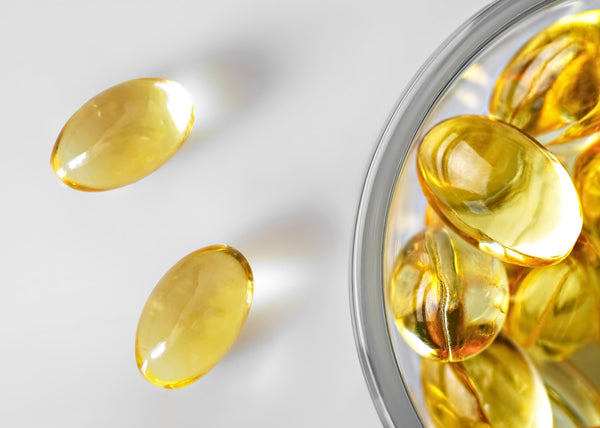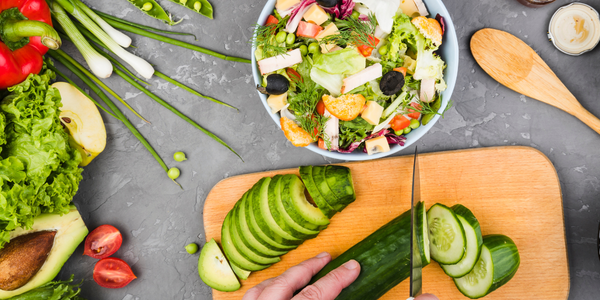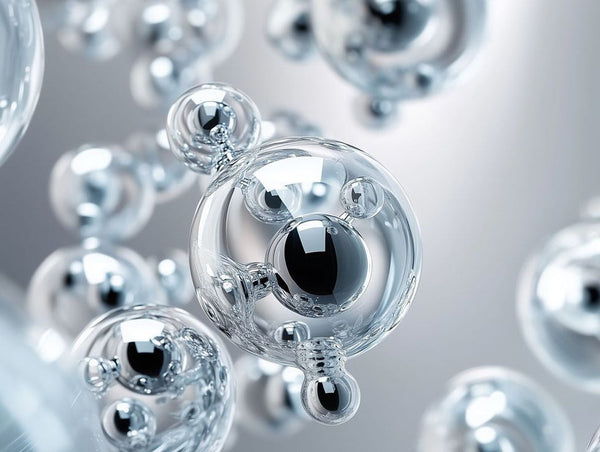Key Ingredients to Boost Collagen for Radiant Skin
As time passes, our skin becomes a canvas that reflects our experiences—moments of joy, stress, and countless late nights. Collagen is a crucial element in this narrative, serving as the backbone of youthful, plump skin. This essential protein provides the structure and elasticity that keep our skin looking vibrant.
However, as we journey through adulthood, collagen production naturally declines, often leaving us seeking ways to restore our skin's youthful appearance. So, how can we effectively boost collagen production? Let’s dive into some key ingredients to boost collagen and help you achieve that radiant glow.
Understanding Collagen: The Building Block of Beauty
Collagen is the most abundant protein in our bodies, making up about 75% of our skin's structure. Unfortunately, after the age of 25, collagen production begins to decline. Factors like sun exposure, poor diet, and stress can exacerbate this decline, leading to wrinkles and sagging skin. Thankfully, there are several natural collagen enhancers that can help replenish this essential protein and keep your skin looking youthful.
1. Vitamin C: The Collagen Catalyst
If there’s one ingredient that stands out in the realm of ingredients that boost collagen production, it’s Vitamin C. This powerful antioxidant not only protects the skin from free radical damage but also plays a crucial role in collagen synthesis. When you consume Vitamin C, your body uses it to convert proline and lysine, two amino acids, into collagen. Foods rich in Vitamin C—like oranges, strawberries, and bell peppers—should be staples in your diet.
For an added boost, consider supplements that contain this vital vitamin, as they can help enhance your skin’s overall appearance. Research shows that oral intake of collagen peptides can significantly improve skin hydration and elasticity [NIH]
2. Hyaluronic Acid: The Hydration Hero
Hyaluronic acid is another superstar when it comes to maintaining skin health. While it doesn’t directly produce collagen, it plays a significant role in skin hydration, making it an invaluable ally. Well-hydrated skin is better equipped to maintain its elasticity and firmness. Incorporating hyaluronic acid into your skincare routine—whether through serums or topical treatments—can amplify the effects of collagen, giving your skin a plump, youthful appearance.
3. Amino Acids: The Building Blocks
Collagen is made up of amino acids, so it stands to reason that incorporating these building blocks into your diet can help boost collagen production. Glycine, proline, and hydroxyproline are particularly important for collagen synthesis. Bone broth is an excellent source of these amino acids. Additionally, plant-based options like legumes, nuts, and seeds can also provide the necessary components to enhance your skin’s collagen levels.
4. Glutathione: The Antioxidant Powerhouse
In recent years, glutathione supplements have gained attention for their skin-enhancing properties. This powerful antioxidant works to neutralize free radicals that can damage skin cells and deplete collagen levels. By reducing oxidative stress, glutathione indirectly supports the maintenance of collagen in your skin. Foods rich in sulfur, like garlic, onions, and cruciferous vegetables, can naturally boost your body's glutathione levels.
For those looking for a concentrated boost, glutathione supplements can be a game-changer in your skincare routine. Studies indicate that glutathione can reduce oxidative stress and may improve skin health [NIH].
5. Zinc: The Unsung Hero
Zinc may not be as widely discussed as Vitamin C or hyaluronic acid, but it plays a crucial role in collagen synthesis. This essential mineral aids in protein synthesis and helps to regulate the production of collagen in your skin. Foods rich in zinc—like nuts, seeds, and legumes—can enhance your skin's health. For those who may not get enough zinc from their diet, supplements can provide an effective alternative to ensure your body has the necessary resources to support collagen production.
6. Omega-3 Fatty Acids: The Fatty Friends
Omega-3 fatty acids, found in fish, walnuts, and flaxseeds, are known for their anti-inflammatory properties. They not only support skin hydration but also help to maintain collagen levels. By incorporating these fatty acids into your diet, you can create an environment that fosters healthier skin. Consider including fatty fish like salmon or plant-based options like chia seeds to boost your omega-3 intake.
How to Increase Collagen Naturally
Incorporating these natural collagen enhancers into your daily routine can significantly impact your skin’s health. Here are a few simple tips to help you get started:
- Eat a Balanced Diet: Focus on a variety of fruits, vegetables, nuts, and proteins to ensure you’re getting all the necessary nutrients.
- Stay Hydrated: Drink plenty of water throughout the day to keep your skin hydrated and plump.
- Prioritize Sleep: Quality sleep allows your body to repair itself and regenerate collagen effectively.
- Limit Sun Exposure: Protect your skin from UV rays with sunscreen and hats, as sun damage can accelerate collagen breakdown.
- Consider Quality Supplements: Look for collagen supplements that are formulated to maximize absorption and contain hydrolyzed collagen peptides. These products often include additional vitamins and minerals to support skin health, ensuring that you not only boost collagen but also enhance overall skin vitality.
Conclusion
Investing in your skin’s health doesn’t have to be complicated. By focusing on ingredients to boost collagen, you can pave the way for a more radiant complexion. From Vitamin C to omega-3 fatty acids, the right nutrients can significantly impact your skin’s appearance. Remember, it’s never too late to start caring for your skin. Embrace these natural enhancers and watch your skin transform!




























